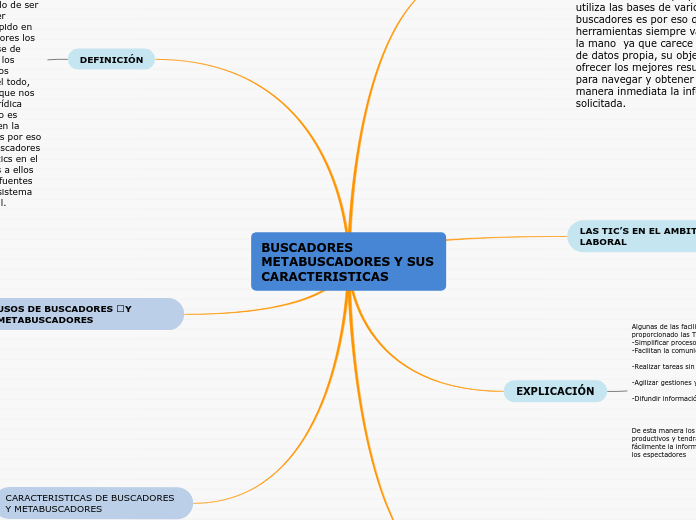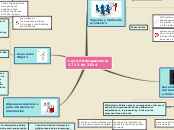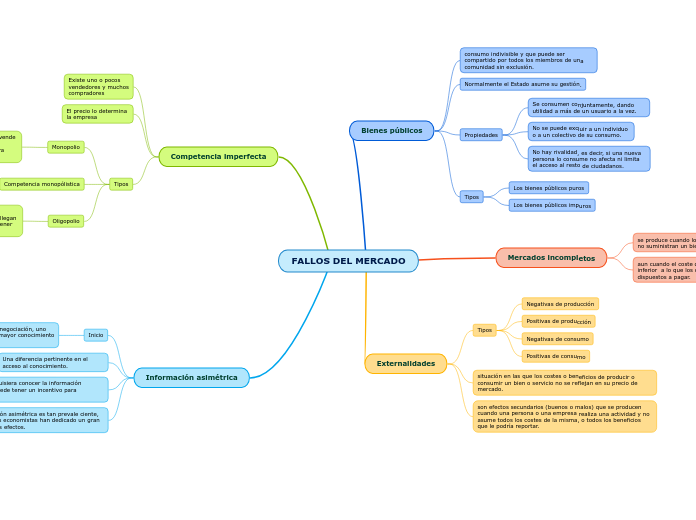BUSCADORES METABUSCADORES Y SUS CARACTERISTICAS
Rivers have always been essential for human life and settlement. A source for drinking, the source of food, and a way to transfer goods from one place to another. They are essential in the environment of rainforest and wetlands.
CARACTERISTICAS DE BUSCADORES Y METABUSCADORES
No tienen una base de datos propia.
*Su objetivo se basa en la optimización de tiempos de respuesta
* Existe cierta incertidumbre sobre sus métodos de combinación de buscadores, obtención de pesos, obtención del orden de los resultados.
Los buscadores es un software (Google Yahoo la web del programador) . El cual compara la palabra escrita en la casilla con la base de datos de la Red.
�
* Despliega la información que se encuentra relacionada con la palabra pero no siempre es la correcta.
�
*Son programas o aplicaciones que residen en un sitio página web
USOS DE BUSCADORES �Y METABUSCADORES
North America
In the 18th century, the river was the primary western boundary of the young United States, and since the country's expansion westward, the Mississippi River has been widely considered a convenient dividing line between the Eastern, Southern, Midwestern United States, and the Western United States.
South America
Amazon River, the greatest river of South America and the largest drainage system in the world in terms of the volume of its flow and the area of its basin.
Metabuscadores
La función de los metabuscadores es acortarnos el tiempo de búsqueda optimizando los resultados tanto en calidad como en cantidad. De esta manera, uno de los principales usos de los meta buscadores es además el posicionamiento SEO. Es decir, los usuarios lo utilizan para agilizar su trabajo de búsqueda y las empresas para posicionarse mejor dentro de su propio mercado. Uno de los más beneficiados en este sentido es el sector hotelero.2
Buscadores
Its source is Lake Itasca in northern Minnesota and it flows generally south for 2,320 miles (3,730 km) to the Mississippi River Delta in the Gulf of Mexico.
The main stem is entirely within the United States. Tributaries - St. Croix River, Wisconsin River, Rock River, Illinois River, Kaskaskia River, Ohio River, Minnesota River, Des Moines River, Missouri River, White River, Arkansas River.
The river either borders or passes through the states of Minnesota, Wisconsin, Iowa, Illinois, Missouri, Kentucky, Tennessee, Arkansas, Mississippi, and Louisiana.
Su funcinoamiento se centra en el momento en que el usuario lanza la búsqueda, donde el meabuscador lo dirige a sus motores asociados, devolviendo una lista de resultados que se puede ordenar según la relevancia.1
The mouth of a river refers to the end of a river, the place where it drains into a larger body of water - another river, a lake, the sea or the ocean.
DEFINICIÓN
The Volga is the longest river in Europe. The waters of the Volga are used to irrigate the steppe regions of southern Russia. Because of its importance in the country, the Volga has mythological status in Russia, and many iconic sites are found along its banks
The Danube is the second-longest river in Europe. Travelers can experience many of the river's sights by embarking on a cruise along its waterways. Danube River Cruises, which are offered by Viking Cruises, typically stop in Cologne, Budapest, Nuremberg, Belgrade and Krems. Following the river is a way to experience several Eastern European cities in one trip. Famous monuments, such as the Hungarian Parliament, have been erected on its coast.
En esta actividad hablaremos de los buscadores, metabuscadores y sus características junto con la importancia de las tics en el ámbito laboral, Los buscadores son páginas de internet que permiten realizar busquedas en la red (Motor de búsqueda) gracias a esto el navegar por estos sitios web ha pasado de ser algo aburrido y agotador a ser sorprendentemente fácil y rápido en conjunto con los metabuscadores los cuales se encargan de nutrirse de otros buscadores extrayendo los duplicados y sumando aquellos resultados que no constan del todo, de forma que la información que nos ofrece es más completa y verídica dado que su principal objetivo es brindar eficiencia y facilidad en la búsqueda de información.�Es por eso que los buscadores y metabuscadores son muy importantes en las tics en el ámbito laboral ya qué gracias a ellos podemos acceder a diversas fuentes de datos a la vez y crear un sistema de trabajo más eficiente y útil.
The Danube is located in Central and Eastern Europe.
The Danube flows through 10 countries, more than any other river in the world. Originating in the Black Forest in Germany, the Danube flows southeast for 2,850 km, passing through or bordering Austria, Slovakia, Hungary, Croatia, Serbia, Romania, Bulgaria, Moldova and Ukraine before draining into the Black Sea. The mouth of the Danube is the Danube Delta. The greater part of the Danube Delta lies in Romania, with a small part in Ukraine (Odessa Oblast).
Tributaries :Iller, Lech, Altmühl, Naab, Regen, Isar, Inn, Ilz, Enns, Morava, Rába, Váh, Hron, Ipeľ, Sió, Dráva, Vuka, Tisza, Sava, Tamiš, Great Morava, Mlava, Karaş, Jiu, Iskar, Olt, Osam, Argeș, Ialomița, Siret, Prut.
DIFERENCIAS SIGNIFICATIVAS
A diferencia de los buscadores que recopilan información de las páginas mediante su indexación, como Google, y de los que mantienen un amplio directorio temático, como Yahoo, los meta buscadores no disponen de una base de datos propia que mantener sino que utilizan las de varios buscadores para encontrar la información solicitada por el usuario. Después muestra una combinación de las mejores páginas que ha devuelto cada buscador.�Así pues, un meta buscador es un buscador de buscadores
EXPLICACIÓN
Algunas de las facilidades que nos han proporcionado las Tic son las siguientes :
-Simplificar procesos de producción
-Facilitan la comunicación
-Realizar tareas sin desplazarse
-Agilizar gestiones y tareas administrativas
-Difundir información Etc.
De esta manera los trabajadores serán más productivos y tendrán oportunidad de difundir más fácilmente la información que desean hacer llegar a los espectadores
LAS TIC’S EN EL AMBITO LABORAL
The Yangtze holds the title of Asia’s longest river. The Yangtze has a momentous place in China’s history and culture, providing some of the country’s most fertile land as well as some of its most artistically inspiring scenery.
Where the Mekong river runs, the land is incredibly verdant shaping one of the richest areas of biodiversity on the planet. Thousands of species call its shores and waters home. Long an essential trade route the Mekong passes through, or close to, some of the region’s most important cities, including Vientiane, Phnom Penh and Saigon.
SECTOR TURISTICO
Antes cuando se quería viajar era buscar una agencia y con horarios que a veces no beneficiaban al cliente, cuando ahora el cliente hace reservaciones desde su dispositivo móvil, ya que hay diversos sitios web donde hay muchos proveedores de servicios para poder satisfacer sus necesidades de todos los clientes.��Con ello podemos entender que gracias a las TIC’s el turismo ha aumentado por la gran facilidad de distribución de información, al marketing y finanzas, han mejorado la competitividad de distintos sitios turísticos, ya que así sabremos como diferenciarnos de otros y así hacer a nuestro cliente feliz.
AMBITO LABORAL
The Yangtze or Yangzi is the longest river in Asia and the longest in the world to flow entirely within one country (Qinghai, Tibet, Yunnan, Sichuan, Chongqing, Hubei, Hunan, Jiangxi, Anhui, Jiangsu, Shanghai provinces). It rises in the northern part of the Tibetan Plateau and flows 6,300 km in a generally easterly direction to the East China Sea.
Tributaries: Yalong, Min, Tuo, Jialing, Han, Wu, Yuan, Zi, Xiang, Gan, Huangpu.
In mid-2014, the Chinese government announced it was building a multi-tier transport network, comprising railways, roads, and airports, to create a new economic belt alongside the river.
Las nuevas tecnologías han revolucionado el mundo laboral. Utilizaremos herramientas en el proceso del almacenamiento, administración y distribución de información que, a través de dispositivos, como: celulares, computadores, tabletas, entre otros.
OBJETIVO
There are four major rivers in Africa: the Nile, the Zambezi, the Congo, and the Niger. The Nile is one of the longest rivers in the world.
The Zambezi's most noted feature is Victoria Falls. Other notable falls include the Chavuma Falls at the border between Zambia and Angola, and Ngonye Falls, near Sioma in Western Zambia.
El objetivo de un buscador es recopilar la información de las páginas mediante su indexación como lo son Google Yahoo Mozilla entre otros conteniendo un amplio directorio temático rastreando y analizando la información que proporcionan a través de los sitios web.
Los metabuscadores son las páginas web en las que se nos ofrece una búsqueda sin que haya una base de datos propia, este utiliza las bases de varios buscadores es por eso que estas herramientas siempre van a ir de la mano ya que carece de base de datos propia, su objetivo es ofrecer los mejores resultados para navegar y obtener de manera inmediata la información solicitada.
The Zambezi is the fourth-longest river in Africa and the largest flowing into the Indian Ocean from Africa. The area of its basin is 1,390,000 square km.
The 2,574-km-long river rises in Zambia and flows through eastern Angola, along the north-eastern border of Namibia and the northern border of Botswana, then along the border between Zambia and Zimbabwe to Mozambique, where it crosses the country to empty into the Indian Ocean.
Major tributaries: Chifumage River, Luena River, Kabompo River, Lungwebungu River, Luanginga River, Gwayi River, Sengwa River, Sanyati River, Kafue River, Luangwa River, Panhane River, Luia River.









